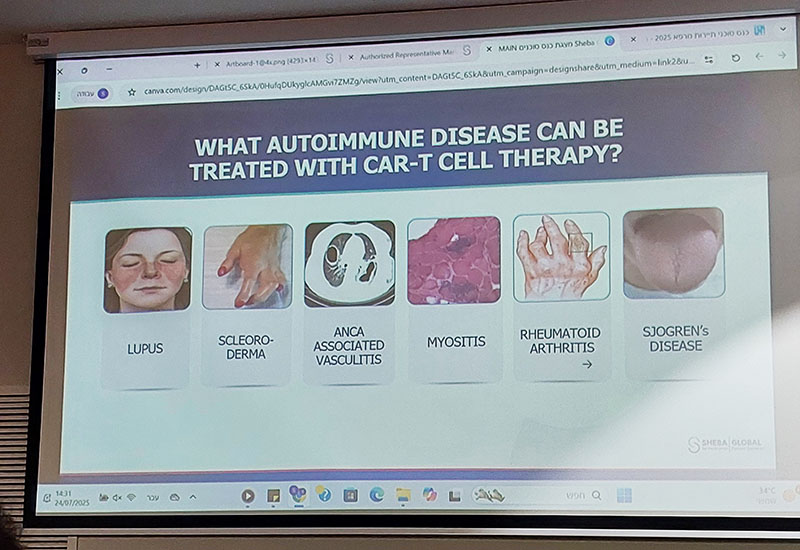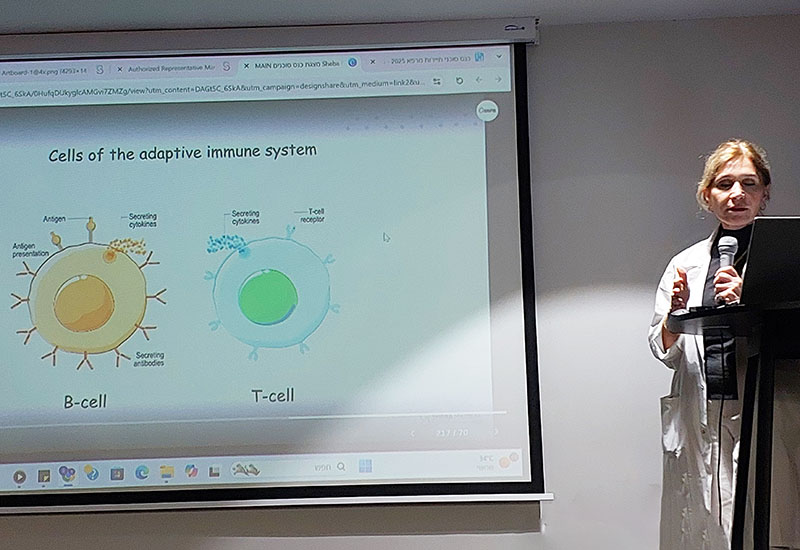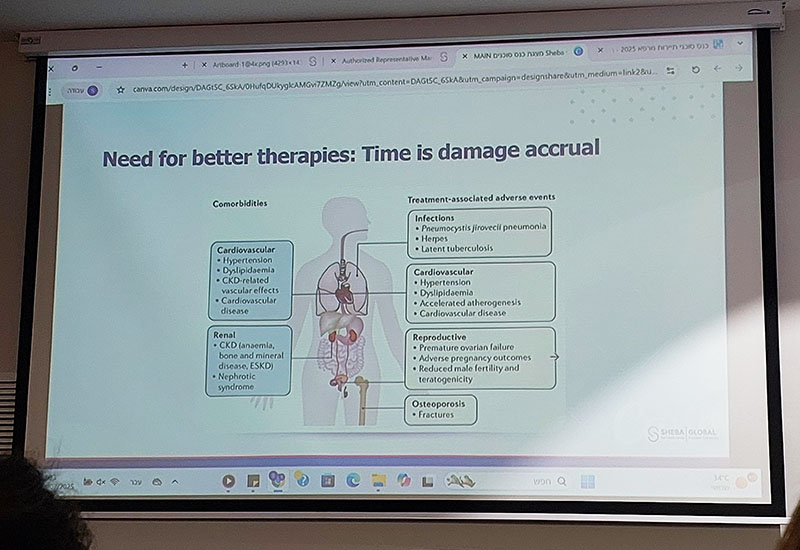Understanding Myositis
Myositis refers to a group of rare autoimmune diseases that cause chronic inflammation of the muscles, leading to weakness, pain, and reduced mobility. In these conditions, the immune system mistakenly attacks muscle fibers and sometimes other tissues such as skin, lungs, and joints.
Types of myositis include:
- Polymyositis (PM) – affects many muscles, particularly those closest to the trunk
- Dermatomyositis (DM) – muscle inflammation combined with distinctive skin rashes
- Inclusion Body Myositis (IBM) – a slower-progressing form, often affecting older adults
- Immune-Mediated Necrotizing Myopathy (IMNM) – characterized by severe muscle weakness and elevated muscle enzymes
Symptoms vary but may include muscle weakness, difficulty climbing stairs or lifting objects, swallowing problems, fatigue, and respiratory issues if the lungs are affected.

Current Treatments – and Their Limitations
Standard therapy for myositis usually involves:
- Corticosteroids to rapidly reduce inflammation
- Immunosuppressive medications such as methotrexate, azathioprine, or mycophenolate
- Biologic drugs like rituximab (MabThera) for certain subtypes
- Physical therapy to preserve mobility and strength
While these treatments can help control symptoms, many patients experience incomplete recovery, ongoing muscle weakness, and significant side effects from long-term immunosuppression. In severe or refractory cases, progressive muscle damage can lead to disability.
CAR-T Therapy – A New Targeted Approach
CAR-T cell therapy for myositis represents a breakthrough in tackling the disease at its source.
The treatment involves:
- Collecting a patient’s own T-cells
- Engineering them to identify and destroy the faulty B-cells producing harmful autoantibodies
- Reintroducing these modified cells to “reset” the immune system
By eliminating the B-cells driving muscle inflammation, CAR-T therapy aims to achieve long-lasting remission, halt disease progression, and improve muscle strength and function.

Prof. Lidar, head of the program, presentation on CAR-T Therapy for Rheumatologic diseases
Why CAR-T for Myositis?
In certain types of myositis — including dermatomyositis and immune-mediated necrotizing myopathy — B-cells and the autoantibodies they produce play an important role in driving muscle inflammation. Targeted removal of these B-cells through CAR-T therapy may lead to deeper and longer-lasting remission than currently available treatments. However, not all forms of myositis are strongly B-cell driven; for example, inclusion body myositis typically responds poorly to B-cell depletion and may not be suitable for CAR-T. Careful subtype identification is essential before considering this therapy.
Potential benefits include:
- Restoration of muscle strength and endurance
- Reduction or elimination of skin symptoms in dermatomyositis
- Less dependency on steroids and immunosuppressants
- Prevention of further muscle and organ damage
The CAR-T Program for Myositis in Israel
Sheba Medical Center, ranked among the world’s top hospitals, offers a pioneering CAR-T program for autoimmune muscle diseases including certain types of myositis.
The program is led by experienced specialists in rheumatology, neuromuscular disorders, and immunotherapy. International patients are welcome, with eligibility assessed through a detailed review of medical history, laboratory results, and disease activity. Because irreversible muscle damage can occur over time, early intervention offers the best chance for functional recovery.

Who May Qualify?
CAR-T therapy may be considered for myositis patients who:
- Have significant disease activity despite multiple standard and biologic treatments
- Show muscle or organ involvement that continues to progress
- Are in stable condition to complete the treatment in Israel (approximate stay: 8–10 weeks)
Start the Process
If you or a loved one is living with myositis that has not responded to traditional therapies, CAR-T cell therapy in Israel could be a life-changing option.
Contact us today to learn more about eligibility, the treatment process, and how Israel’s CAR-T programs for autoimmune muscle diseases are helping patients regain strength and quality of life.
Publication date: August 2025










